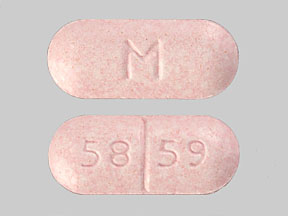Mark Halsey is a licensed therapist, founder, and chief editor of Clean Break Recovery. With over a decade of addiction treatment experience, Mark deeply understands...Read more
Metaxalone is a powerful muscle relaxant prescribed to treat muscle spasms and pain. It is often used in combination with rest and physical therapy to treat painful musculoskeletal conditions. But is Metaxalone an opiate? In this article, we’ll explore the answer to this question, providing evidence and information to help you make an informed decision about this medication.
What is Metaxalone?
Metaxalone is a prescription drug that is used to treat muscle spasms and pain. It is typically prescribed as a muscle relaxant and is sold under the brand name Skelaxin. It is an oral medication that is available in both tablets and capsules. Metaxalone is a central nervous system (CNS) depressant, meaning it slows down activity in the brain and can cause relaxation.
How Does Metaxalone Work?
Metaxalone works by inhibiting the release of certain chemicals in the brain that are responsible for pain, muscle spasms and tension. It works by blocking the neurotransmitters responsible for these symptoms, thus reducing the severity of the symptoms. Metaxalone also has an impact on the brain’s ability to respond to certain stimuli, which can help reduce feelings of anxiety and stress.
What Are the Side Effects of Metaxalone?
Metaxalone can cause a variety of side effects, including drowsiness, dizziness, nausea, headache, dry mouth, and upset stomach. It can also cause fatigue, confusion, and blurred vision. In rare cases, it may also cause an allergic reaction or liver damage. It is important to talk to your doctor before taking Metaxalone to make sure it is safe for you.
Is Metaxalone an Opiate?
No, Metaxalone is not an opiate. It is a central nervous system depressant and does not belong to the opioid class of drugs. Opiates are drugs derived from the opium poppy and are typically used to treat pain. Metaxalone is not derived from the opium poppy and is not used to treat pain; it is used to treat muscle spasms and tension.
Is Metaxalone Addictive?
Metaxalone is not considered to be addictive when taken as directed by a doctor. However, it is important to use it only as prescribed, as it can be habit-forming if used in excess. It is also important to note that Metaxalone can interact with certain drugs and alcohol, so it is important to talk to your doctor about any potential interactions.
What Are the Risks of Taking Metaxalone?
The main risk associated with taking Metaxalone is that it can cause drowsiness and dizziness, which can increase the risk of falls and other accidents. It is important to talk to your doctor about any potential risks before taking Metaxalone. Additionally, Metaxalone can interact with certain medications and alcohol, so it is important to talk to your doctor about any potential interactions.
Related Faq
What is Metaxalone?
Metaxalone is a muscle relaxant that is used to treat skeletal muscle conditions such as pain, muscle spasms, and stiffness. It is sold under the brand name Skelaxin and is available as an oral tablet or an oral suspension. Metaxalone works by blocking nerve impulses that are sent to the brain, thus causing the muscles to relax. It is usually prescribed for the short-term relief of muscle spasms and pain.
What is an Opiate?
An opiate is any drug that is derived from the opium poppy plant. Opiates are powerful painkillers and can be highly addictive. Examples of opiates include heroin, oxycodone, hydrocodone, morphine, and codeine. Opiates work by binding to opioid receptors in the brain and reducing the perception of pain. Opiates can be used to treat pain, but they can also be abused.
Is Metaxalone an Opiate?
No, Metaxalone is not an opiate. Metaxalone is a muscle relaxant that is used to treat skeletal muscle conditions. It does not contain any opiate medications, nor does it bind to opioid receptors in the brain like opiates do. Metaxalone does not have the same strong painkilling effects as opiates and is not as likely to lead to addiction.
What are the side effects of Metaxalone?
Common side effects of Metaxalone include drowsiness, dizziness, headache, nausea, and vomiting. Other side effects can include rash, difficulty breathing, confusion, blurred vision, and changes in heart rate or blood pressure. If any of these side effects occur, it is important to contact a doctor right away.
What is the recommended dosage of Metaxalone?
The recommended dosage of Metaxalone depends on the individual and the condition being treated. It is usually taken three times a day with food. The usual recommended starting dose is 400 mg, but it can be increased up to 800 mg if needed. It is important to follow the directions given by your doctor when taking Metaxalone.
What should be avoided when taking Metaxalone?
When taking Metaxalone, it is important to avoid activities that require mental alertness, such as driving or operating machinery. It is also important to avoid alcohol, as it can increase the side effects of Metaxalone. Additionally, Metaxalone should not be taken with other muscle relaxants or narcotic pain medications.
Addicts Using This ‘Safe’ Medication To Get High
After review of the evidence and research, it is clear that Metaxalone is not an opiate. Metaxalone is a muscle relaxant that helps to alleviate muscle spasms, stiffness, and pain. While it has similar effects to opiates, it is not an opiate itself. Metaxalone is an important and effective tool to help those suffering from muscle pain and spasms, and it is important to understand the differences between opiates and Metaxalone.
Mark Halsey is a licensed therapist, founder, and chief editor of Clean Break Recovery. With over a decade of addiction treatment experience, Mark deeply understands the complex needs of those struggling with addiction and utilizes a comprehensive and holistic approach to address them. He is well-versed in traditional and innovative therapies, including cognitive-behavioral therapy, motivational interviewing, and mindfulness-based interventions.
More Posts
